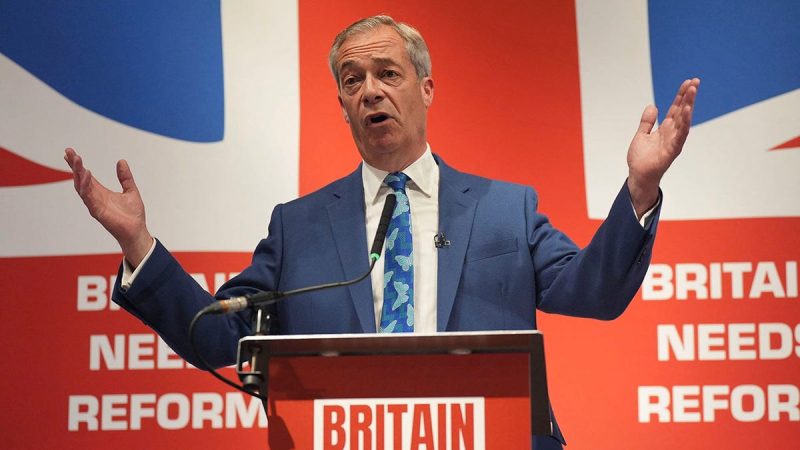Former Brexit Leader Nigel Farage is Running in UK Election, Wants to ‘Make Britain Great Again’
Brexit has been a tumultuous journey for the United Kingdom since the referendum in 2016, with repercussions felt across various sectors of society. Nigel Farage, a key figure in the Leave campaign, has once again entered the political arena with intentions to reshape the future of the UK. Although Farage has formally stepped down from leading the UK Independence Party (UKIP), his ambition to advocate for Brexit and advocate for a vision of a new Britain remains unwavering.
Farage’s decision to run in the UK election carries significant implications not only for the UK, but also for the wider European landscape. His staunch pro-Brexit stance has garnered both support and criticism, reflecting the deep divisions within British society over the issue of EU membership. Farage’s message of ‘making Britain great again’ draws clear parallels to the rhetoric of certain populist leaders who have risen to power in recent years, suggesting a shift towards nationalist sentiments in UK politics.
One of the central themes of Farage’s campaign is the promise of economic prosperity outside the EU. He argues that Brexit will allow the UK to regain control of its trade policies, borders, and laws, leading to increased job opportunities and improved living standards for British citizens. While this vision may appeal to those dissatisfied with the status quo, critics warn of the potential economic risks and uncertainties associated with a no-deal Brexit scenario.
Moreover, Farage’s candidacy raises questions about the future of the UK’s relationship with the EU and the wider world. His confrontational approach to Brexit negotiations has garnered both admiration and scorn, with some praising his uncompromising stance and others accusing him of fostering division and polarization. As the UK grapples with complex geopolitical challenges, Farage’s insistence on a ‘hard Brexit’ could have far-reaching implications for the country’s international standing and diplomatic relations.
Beyond his Brexit agenda, Farage’s political legacy is characterized by a populist appeal to disaffected voters who feel marginalized by mainstream parties. His ability to tap into the frustrations of the British electorate, particularly on issues such as immigration and sovereignty, has helped him cultivate a strong following among a certain segment of the population. However, critics argue that his divisive rhetoric and anti-establishment stance risk deepening social divisions and undermining political stability.
In the run-up to the UK election, Farage’s presence in the political arena adds a layer of complexity to an already turbulent landscape. The outcome of the election will not only determine the future trajectory of Brexit but also shape the broader direction of UK politics for years to come. As Farage positions himself as a champion of national sovereignty and reform, the electorate faces a critical choice between continuity and change, unity and discord.
In conclusion, Nigel Farage’s bid for a seat in the UK election represents a pivotal moment in Britain’s ongoing political evolution. His campaign to ‘make Britain great again’ underscores the profound challenges and opportunities facing the country in a post-Brexit era. Whether Farage’s vision resonates with the voting public remains to be seen, but his presence on the electoral stage is sure to fuel further debate and reflection on the future of the UK and its place in the world.

